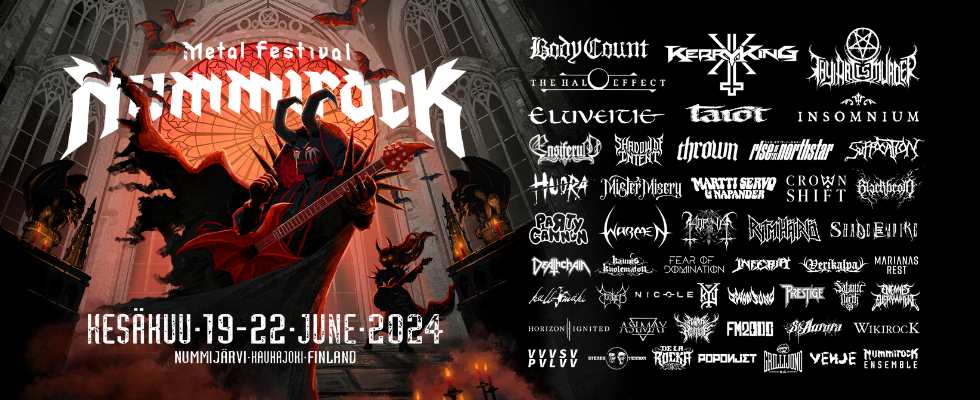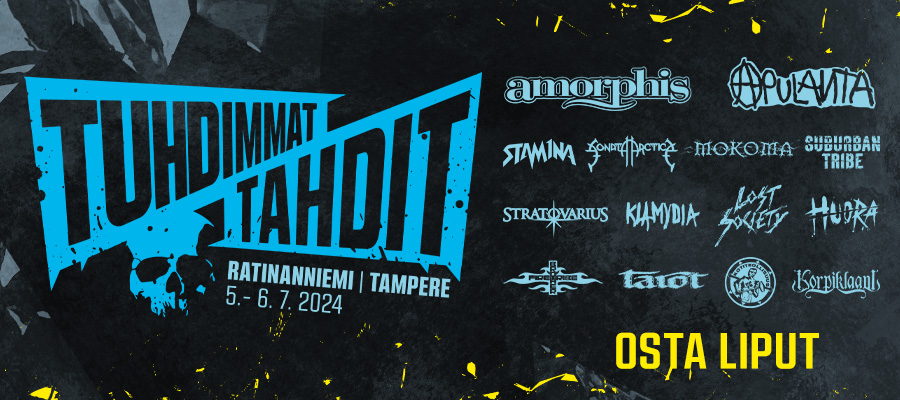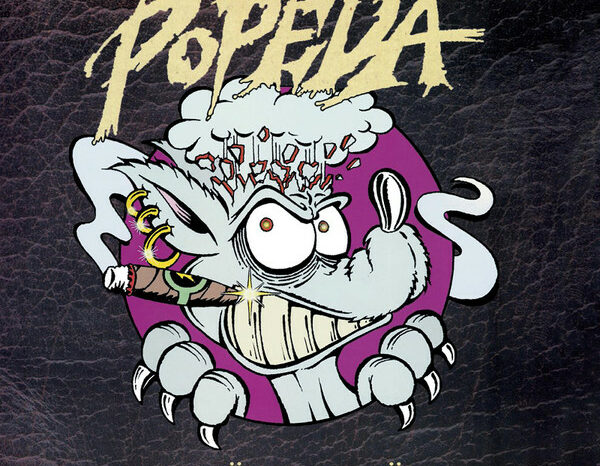Fear Factoryn vokalisti vertaa Spotifyin toimintaa murhaamiseen kiinnijäämättä
 Muusikkojen taloudellisiin asioihin keskittyvä sivusto Music Business Facts on tehnyt hiljattain haastattelun yhdysvaltalaisen industrial metallin pioneerin Fear Factoryn vokalistin Burton C. Bellin kanssa. Burton on haastattelun kuluessa kertonut kuuluvansa ASCAP -nimiseen järjestöön, joka keskittyy keräämään artisteille kuuluvia rojalteja erilaisista paikoista. Puhuttaessa Spotifyin sekä Pandoran toiminnasta ja heidän artisteille maksamista korvauksista Burton yltyy vertaamaan striimaukseen keskittyneitä palveluita murhaajiin, jotka selviävät kiinnijäämättä tekemistään murhista. Voit lukea lisää Burton C. Bellin ajatuksia aiheesta tästä:
Muusikkojen taloudellisiin asioihin keskittyvä sivusto Music Business Facts on tehnyt hiljattain haastattelun yhdysvaltalaisen industrial metallin pioneerin Fear Factoryn vokalistin Burton C. Bellin kanssa. Burton on haastattelun kuluessa kertonut kuuluvansa ASCAP -nimiseen järjestöön, joka keskittyy keräämään artisteille kuuluvia rojalteja erilaisista paikoista. Puhuttaessa Spotifyin sekä Pandoran toiminnasta ja heidän artisteille maksamista korvauksista Burton yltyy vertaamaan striimaukseen keskittyneitä palveluita murhaajiin, jotka selviävät kiinnijäämättä tekemistään murhista. Voit lukea lisää Burton C. Bellin ajatuksia aiheesta tästä:
”I’m part of ASCAP, which is a royalty collection company, like BMI. ASCAP collects my royalty [for songs] that are played live [and on] radio [and used] in movies, commercials… whatever.
”Streaming is a very debated issue right now, because companies like Pandora and Spotify are getting away with murder, basically, because they are going with a contract… they are going with a trademark agreement written in the 1940s to pay the artists the least amount of royalty possible, because in the 1940s, there was no such things as the Internet, and they never expected it. So, because of that, they’re using this copyright/trademark law that was written to get away with paying the artist literally nothing. For instance, an artist like Adele — multi-platinum artist. One of her songs, ’Someone Like You’ or whatever, had over 11 million listens on Pandora. The person who wrote that song, because of the royalty rate, only got paid 11 thousands dollars. For over 11 million million hits [or] listens on Pandora! That’s fucking ridiculous! And that’s what they’re getting away with, and Pandora is fighting to keep it that way.”
Artikkeli jatkuu mainoksen jälkeen Mainos päättyy”ASCAP invited me to a conference. I live on the East Coast, in Pennsylvania, and it just so happens that the area that I live in, my state representative, named Tom Marino, he is on the board to rewrite these trademark laws, to change them. And so ASCAP had a bunch of local artists — I happen to be one of them — who are signed up to ASCAP, who, basically… it’s important for them to get a proper royalty rate to survive. So we met with this representative and we all sat and discussed, like… ’This is our living. This is what we do.'”
”Pirating is bad enough. People think it’s okay to steal downloads and music for free — they think it’s okay — but would they enjoy it if I walked into their house after they created a meal for their family, I’d just pick it up and take it? It’s, like, ’Oh, it’s free.’ It’s the same thing. You just made this for your family to survive.
”I do records, one, because it’s my passion, and two, so me and my family can survive, and you’re just gonna take it? For free, without paying for it? That’s the analogy we give.
Artikkeli jatkuu mainoksen jälkeen Mainos päättyy”We are actively fighting this to make sure that all recording are properly… We’re not asking for the world, we’re not asking for a million, we are asking for a decent royalty rate. Because with a decent royalty rate, it makes sense to continue writing, it makes sense to continue being in a band.”
”Taylor Swift… She’s a fine example. I’m not much of a fan of her music, but I respect the woman immensely, because she is one of the fiercest fighters for artists about this… over this situation. So I highly respect Taylor Swift, ’cause she fiercely fights for us, and it’s amazing.”








